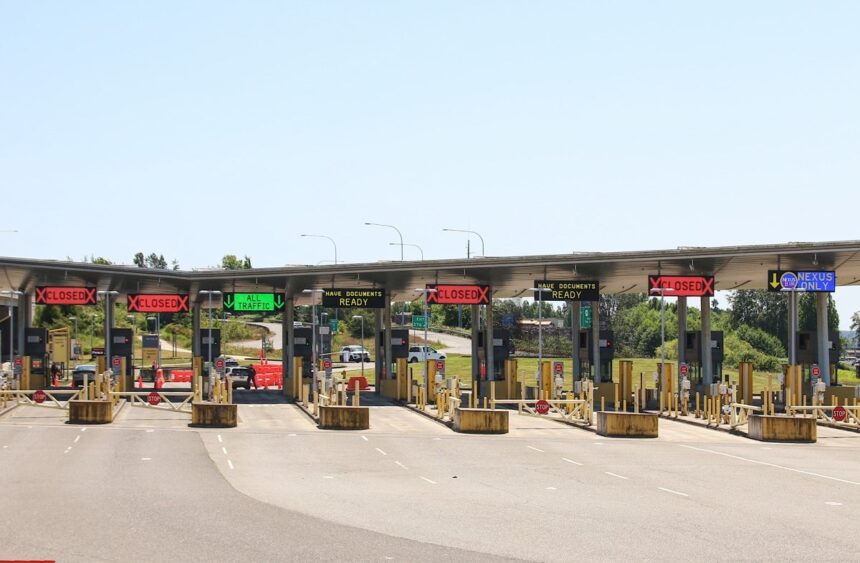The flow of British Columbians heading south across the U.S. border has hit a significant slump, marking the seventh consecutive month of declining crossings. Data released yesterday by the Canada Border Services Agency reveals that BC residents made approximately 1.34 million trips to the United States in August, representing a 12.5% decrease compared to the same period last year.
This continuing downward trend reflects a complex interplay of economic pressures and shifting travel patterns that began earlier this year. The decline is particularly noteworthy as summer months typically see increased cross-border activity, with August historically being one of the busiest travel periods between the two nations.
“What we’re witnessing is largely driven by economic considerations,” explains Dr. Marcus Chen, economics professor at the University of British Columbia. “The persistent strength of the U.S. dollar against the Canadian currency has effectively increased the cost of everything from shopping to accommodations for Canadian travelers.”
Indeed, the exchange rate has remained a significant deterrent, with the Canadian dollar hovering around 74 cents U.S. throughout much of the summer. This represents a substantial decrease in purchasing power compared to pre-pandemic levels when the loonie commanded greater value.
Border communities in Washington state are feeling the impact of this decline. Businesses in Bellingham and Blaine that have historically relied on Canadian shoppers report noticeable reductions in revenue. The Cascade Mall in Burlington has seen foot traffic from Canadian shoppers decrease by approximately 18% compared to last year, according to their quarterly business report.
The reduction extends beyond day trips. Statistics from Canada News indicate that overnight stays by British Columbians in Washington state have decreased by 9.3% compared to 2023 figures. This suggests that even vacation travel has been affected by economic considerations.
While economic factors play a significant role, other elements contribute to the decline. Enhanced security measures at border crossings have increased average wait times, and recent political tensions between Canada and U.S. political administrations have created what some analysts describe as a “psychological barrier” to casual cross-border travel.
The tourism sector in British Columbia has partially benefited from this trend, with domestic tourism rising as residents opt to explore local destinations rather than venture south. Tourism Vancouver reports a 7.2% increase in regional tourism activities compared to last summer.
“We’re seeing more British Columbians discovering or rediscovering local attractions,” notes Sandra Morley, spokesperson for Tourism BC. “While this doesn’t completely offset the economic impact of reduced cross-border commerce, it does represent a silver lining for local businesses.”
The ripple effects extend to business relationships between the two regions. Cross-border commerce, excluding tourism, has demonstrated more resilience, declining by only 3.8% according to data from Statistics Canada. This suggests that while personal travel has decreased substantially, business necessities continue to drive cross-border movement.
Transportation analysts predict this trend may continue through the remainder of 2024, particularly if currency exchange rates remain unfavorable and inflation concerns persist on both sides of the border.
As winter approaches and holiday shopping season looms, the question remains: will economic necessity eventually overcome these barriers, or are we witnessing a fundamental shift in the cross-border relationship between British Columbia and its American neighbors?










